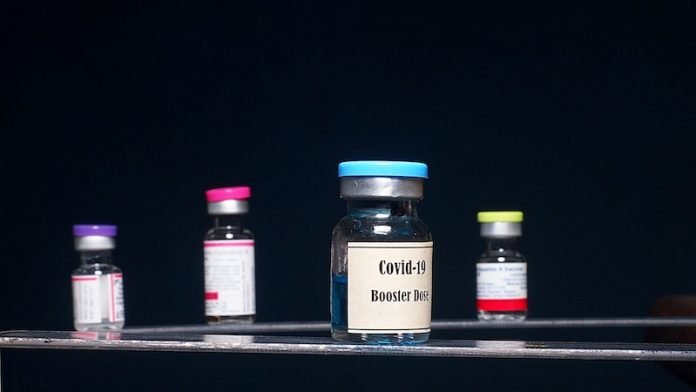
Scientists from Weill Cornell Medicine—Qatar found that a recent Pfizer or Moderna mRNA-vaccine booster provided good but temporary protection against infection by the SARS-CoV-2 Omicron variant.
The research is published in the New England Journal of Medicine and was conducted by Dr. Heba Altarawneh et al.
In the study, researchers analyzed the Omicron wave in Qatar last winter, comparing prior infections, vaccine immunity and combinations thereof among more than 100,000 Omicron-infected and non-infected people.
They found that full mRNA vaccination plus a booster dose, atop natural immunity due to infection by an earlier variant, was linked to the strongest protection from Omicron infection.
However, vaccine immunity against new infection appeared to wane rapidly, whereas people with a prior-variant infection were moderately protected from Omicron with little decline in protection even a year after their prior infection.
The team also found that both vaccination and prior infection provided strong and durable protection from severe, critical, or fatal COVID-19 during the Omicron wave.
The team says a key finding was that a history of vaccination with the standard two doses of either the Pfizer or Moderna mRNA vaccine, but no history of prior infection, brought no significant protection against symptomatic omicron infection.
Having a booster dose appeared to be about 60 percent protective, though most boosters were received just weeks before the Omicron wave.
Overall, the analysis suggested—consistently with prior studies—that mRNA vaccines and boosters work fairly well in protecting against symptomatic omicron infection, though their protective effect wanes rapidly and disappears within six months or so.
For those with no history of vaccination, SARS-CoV-2 infection during a prior-variant wave appeared to provide about 50 percent protection against symptomatic infection during the Omicron wave, and this “natural immunity” was linked to almost the same degree of protection even a year after infection.
The combination of prior, full vaccination and prior infection was maximally protective:
Individuals with prior infection and three doses of either mRNA vaccine were, overall, nearly 80 percent protected from symptomatic infection during the Omicron wave.
The results also indicated that vaccination, prior infection alone or a combination, was protective against severe illness from Omicron infections—the protective effect ranging from about 72 percent for previous infection alone to 100 percent for previous infection plus three vaccine doses.
These findings demonstrate the benefits of vaccinating those with prior infection for optimal protection against the Omicron variant.
If you care about Omicron, please read studies that prior COVID infection less protective against Omicron, and you need three COVID-19 exposures to get a broad immunity for omicron.
For more information about COVID, please see recent studies about two new drugs to treat COVID-19, and results showing scientists find antibodies that can neutralize Omicron.
Copyright © 2022 Knowridge Science Report. All rights reserved.



